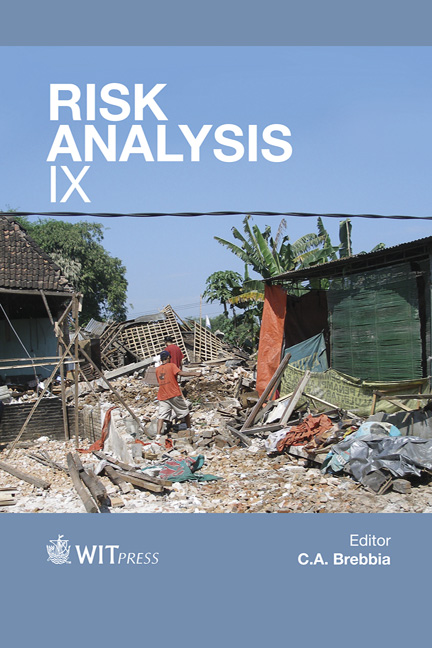Environmental Risk Assessment Of Cement Dust On Soils And Vegetables In An Urban City Of South Western Nigeria
Price
Free (open access)
Volume
47
Pages
7
Page Range
133 - 139
Published
2014
Size
452 kb
Paper DOI
10.2495/RISK140121
Copyright
WIT Press
Author(s)
T. A. Laniyan, A. S. Olatunji & O. G. Fagade
Abstract
The negative consequence of industries in urban cities has become a major concern. Environmental risk assessment of heavy metals in the cement factories around Ewekoro environ was evaluated to deduce its risk on public health. Soil samples and consumable vegetables (Sugar-cane (Saccharumofficinarum), Soko (Celosia argentea), Cocoyam (Colocasiaesculerita) and Ewedu (Corchoruos olitorius) were collected 200m apart around the cement factory. Soil samples were dis-aggregated and sieved through a 65μ mesh sieve, then analyzed using inductively coupled plasma-emission spectrometry (ICP-ES), while plant samples were crushed and pulverized before being analysed using inductively coupled plasma-mass spectrometry (ICP-MS), all analyses were done at Acme laboratories Canada. Geochemical result of soils showed that most of the metals have values above the USEPA standard except Ni, V, Cr, and Ba, due to the effect of cement factory. Contamination factor and degree (Cdeg) revealed extreme contamination of Zn and Mn. Inter elemental analysis showed a strong correlation between Cr-As (‘r’ = 0.872) and Ga-v (‘r’ = 0.936), which reflects the same anthropogenic source. Geochemical results in vegetables revealed Zn to be the highest metal accumulated, and that which is most contaminated is Ewedu (Corchoruos olitorius). A strong and positive correlation was found in Ba-Sr, and Cd-Zn with r > 0.9 showing the same anthropogenic source.Transfer factor(TF) revealed accumulation of metals by the vegetables. Analysis of the health implications of these heavy metals was carried out in some clinics around the area and the common diseases recorded are the ones generally associated with cement dust inhaling. Soils and vegetables
Keywords
transfer factor, geo-accumulation index, contamination, vegetables, anthropogenic





